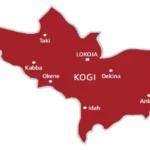
The British Broadcasting Corporation (BBC), Hausa Service, celebrated its 60th Anniversary, last Thursday in Abuja.
The first aired programme on the BBC Hausa was on March 13, of March, at 0930 GMT presented by late Aminu Abdullahi Malumfashi in a 15-minute programme. This was followed by a translated programme ‘West Africa in the News’ read by Abubakar Tunau.
The service has for the past 60 years been broadcasting what has now become quality programmes for the Hausa-speaking audience in Nigeria, the West Africa and the world at large.
Prior to the event, the Director of the BBC World Service Group, Francesca Unsworth, said: “We are very proud of the BBC Hausa service and the many years of vital broadcasting it has provided for our audience. This fantastic milestone shows its great success, and long may it continue.”
On his part, the acting head of the BBC Hausa Service, Jimeh Saleh, said: “The anniversary is an opportunity to reconnect with our audiences whose trust has kept us ahead of the competition through the decades. It is also a time of reflection for us on the challenges we face as we seek innovative ways of serving them better on the fast-changing digital landscape.”
At the event, which took place at the Shehu Musa Yar’Adua Centre, Abuja, different personalities were full of encomiums for the BBC Hausa Service.
Top government officials, former BBC staff and other invited guests, from within and outside Nigeria, attended the occasion, which was preceded by about two weeks of programmes ahead of the D-Day.
Present at the event was Speaker of the House of Representatives, Yakubu Dogara, Governor Abdullahi Umar Ganduje of Kano State, while the guest speaker was Prof Abdalla Uba Adamu, the Vice Chancellor of the National Open University of Nigeria (NOUN).
Speaking on the topic, ‘The role of the media in promoting Hausa language and culture,’ Prof Abdallah said the media, BBC Hausa inclusive, has provided a platform on which different political classes express themselves among the Hausa speaking audience.
He said this has brough new terminologies into the Hausa language, thereby expanding the scope of the language for further discourse among scholars.
He said such was made possible through different programmes of various media outlets, especially BBC Hausa’s programmes in the last 60 years. He congratulated the medium for keep its listeners abreast with the various happenings in and around their domains.
The professor of media studies and culture, also said that the history of the Hausa language, which some people relates with Bayajidda, is not true, saying anybody that does not have direct or indirect relationship with the seven original seven Hausa towns could not be referred to as a Hausaman but someone who understands Hausa language.
The seven Hausa origins he listed are Kano, Katsina, Daura, Zazzau (Zaria), Rano, Gobir and Biram.
Prof Umar Pate of the Department of Mass Communication, Bayero University Kano, while speaking, said the BBC Hausa is ahead of its contemporaries mainly due to four reasons. In fact, the communication expert said some people do not believe a story if it is not aired by BBC Hausa.
First, he said, the BBC Hausa says the truth no matter whose ox is gored. He said the service has become a phenomenon in airing the truth no matter what it takes and irrespective of whom is affected. The service, he said, has become a reference point in terms of telling the truth.
This has become so because nobody dictates to BBC Hausa what to do or queries it when it broadcasts something that affects somebody, no matter how highly placed, he said.
Second, he said BBC Hausa has in abundance professionalism and state-of-the-art broadcast equipment, which give the service an edge over others. He said listeners often want to listen to news from professionals who deliver their messages with a lot of expertise. This, again, makes listeners to be satisfied with the BBC Hausa Service.
Third, he said the service always broadcasts news that directly affects the listener. He said no matter how small an issue is, once it affects its listeners, the service does not look the other way. By so doing, he said, listeners feel more at home with BBC Hausa Service than any other station.
Fourth, Prof Pate said BBC Hausa comes up with a lot of innovation, which he said brings about modernization in its programmes. He said the service makes sure it reaches its audience, especially the youth, in whatever way possible these days of internet.
As at today, the operates on various social media platforms such as Youtube Twitter, Instagram, Facebook and Google+.
The mass communication professor said he grew up to see his father listening to the BBC Hausa Service, a habit he also imbibed, and he always encourages his students to listen and learn from the service.
President Muhammadu Buhari had in a voice message at the occasion said he has spent many years listening to BBC Hausa Service. Buhari had on different occasions said that he listens to the service every morning before setting out for the day’s job.
Najwa Salisu Ahmad, a doctorate degree student, said she has been listening to the BBC Hausa Service almost 20 years now nonstop and that the service has influenced her life immensely.
“Indeed, listening to BBB has played important role in my life positively. It has changed my different thoughts, especially when I found myself as a journalism student. In fact, it’s because of BBC Hausa that I decided to study journalism,” she said.

 Join Daily Trust WhatsApp Community For Quick Access To News and Happenings Around You.
Join Daily Trust WhatsApp Community For Quick Access To News and Happenings Around You.


